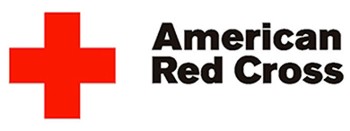Red Cross: Blood Donations Even More Critical in Summer
Red Cross: Blood Donations Even More Critical in Summer

Supplying blood to nearly 30 Bay Area hospitals, the Northern California Blood Services Region of the Red Cross must collect more than 300 pints of blood each day in order to keep up with local demand.
That is just an average quantity; in some cases the need can soar much higher. For instance, when a Fremont police officer was wounded in the line of duty last August, he received 80 pints of blood right after being hospitalized. The body only holds 10 to 12 pints of blood, explains Sara O'Brien, Communications Manager for the American Red Cross, but it took a long time for the medical team to locate and stop the source of his internal bleeding.
Fortunately, O'Brien continues, residents throughout the area stepped forward to donate blood in the officer's honor. "The day after he was shot, a mother giving birth needed multiple units of blood. The hospital felt that had it not been for the donations the policeman inspired, the blood she needed might not have been available," O'Brien relates.
The summer months are typically a challenging time for the Red Cross because many regular blood donors are away on vacation or are preoccupied with other seasonal activities. At the same time, blood needs can rise during the summer as increased roadway and travel-related injuries can drain supplies.
In addition to holding regular blood drives, such as the recent "Pint for a Pint" promotion giving donors a coupon for a free pint of Baskin-Robbins ice cream, the Red Cross offers ongoing opportunities for blood donation. The Pleasanton blood donation center is located nearby, at 5556B Springdale Avenue. Its staggered hours - Mondays from 8:30 am to 4:00 pm, Tuesday through Thursday from 11:00 am to 6:30 pm, and Fridays and Saturdays from 7:30 am to 3:00 pm - accommodate most work schedules. A new computer system, BioArch, just went live at the end of June to streamline the registration process.
Businesses can also sponsor their own blood drives, either by hosting a Bloodmobile or setting up a collection area, in a lounge or a lunchroom, for example, for the day. Along with bringing the personnel and equipment required, "we'll make flyers, paycheck stuffers, and posters to promote the date," O'Brien offers. "We can also arrange for online or in-person sign-up." The key to success, she continues, is to have an onsite contact to encourage participation.
"So many people have fears about needles, or they just don't think about giving blood because they haven't seen the need within their own family," she says, highlighting the importance of the personal connection.
In fact, there is a budding trend to donate blood as a tribute or in lieu of gift-giving. O'Brien cites the instance of a woman who held a blood drive for her 70th birthday. "She didn't need any presents, and instead requested that friends and family donate blood in her honor."
After testing, every unit of donated blood is separated into three components - red blood cells, platelets, and plasma - each of which typically goes to a different recipient. "There aren't a lot of things you can do in an hour that help save several people at once," O'Brien remarks.
To schedule an appointment at the local center, donors can call 1-800-RED CROSS (1-800-733-2767) or visit redcrossblood.org. To sponsor a blood drive in the Tri-Valley area, contact Ed Faso at (510) 773-1868.
Also in this issue...
- IntegenX DNA Sampling Tools Herald Quantum Leap in Processing Time
- Auto Insurance Specialists' Breadth, Size Set the Agency Apart
- Business Bits
- Executive Profile: Rick Benitez, Todd Allen and Tony Russo, Landmark Mortgage
- Attorneys at Hoge Fenton Are Committed to Business and the Community
- Blackboard Collaborate Provides Multipurpose Platform for Online Learning
- Hacienda Dining Guide 2011
- Red Cross: Blood Donations Even More Critical in Summer
- Spare the Air Turns 20, Launches iPhone App, Sponsors 2011 Great Race
- Great Books of Pleasanton Discusses Works that 'Bite and Sting'
- Join the Great Race for Clean Air
- Join the Hacienda Helping Hands Campaign
- Hacienda Index
- Calendar




